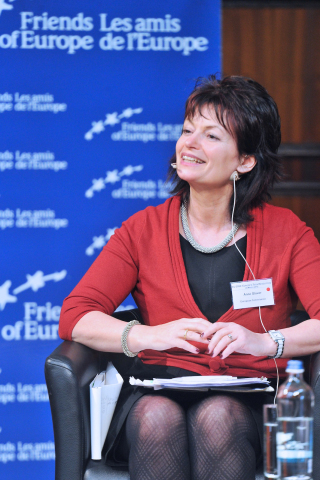
European Science’s Great Leap Backward
December 5, 2014
Who pays for the sanctions on Russia?
December 5, 2014This article was first published in Affari Internazionali of the Italian Institute for International Affairs.
The EU’s sanctions on Russia mark the low point in relations between Brussels and Moscow since the end of the Cold War. Though there is a fierce debate over the impact of these sanctions on the Russian economy, much less attention is paid to their cost to EU Europe.
The sanctions on Russia have created winners and losers.
Let’s take a closer look at the price that some member states’ economies are paying. In fact, the sanctions have created winners and losers.
There is a high degree of economic interdependence between Russia and the EU. Russia is the EU’s third largest commercial partner, while the EU is Moscow’s most important trade partner. The EU imported goods and services from Russia worth around €206 billion, €160 billion of which was energy (oil and gas). Total EU-Russia trade was over €326 billion in 2013 — roughly the GDP of Austria or Denmark.
Foreign direct investment is also an excellent indicator of this interdependence. In 2012, about 75 percent of all investment in Russia came from EU countries, while Moscow invested around €8 billion in EU Europe in 2013 alone.
Sanctions have been hotly debated. The fact is that the burden of the sanctions is not distributed equally among member states. Those countries that have been most vocal about sanctions are those with the most commercial trade with Russia, and thus the most to lose. Germany leads the pack with €75 billion worth of business in 2013, followed by the Netherlands (€37 billion), Italy (€30 billion) and Poland (€26 billion).
Those countries that have been most vocal about sanctions are those with the most commercial trade with Russia, and thus the most to lose.
Those countries that export the most to Russia have been penalised in two ways. First, there’s the ban on the sale of “dual use” technology for the exploration of oil and gas deposits. The European suppliers of these products will incur some losses. Second, there’s the rouble’s depreciation: 20 percent over the period of a few months. This, triggered by capital flight from Russia, has negatively impacted Russians’ purchasing power.
This hurts Germany, Italy, and France most of all, whose exports amount to €36, €11 and €8 billion a year, respectively, as well as others that trade with Russia, such as Austria, Poland, Lithuania and the Czech Republic.
In the ongoing sanctions war, Moscow has banned the import of European food products, the impact of which is substantial. The EU exports around 10 percent of its food products to Russia — business worth about €11 billion a year. Since the restrictions do not include soft drinks or alcohol, the volume affected is €5 billion. Of this, €1 billion is from Lithuania alone, while the other countries most affected are Poland, Finland, Greece and Spain. The European Commission has introduced some stopgap measures that should help producers in those worst-hit countries.
But the crisis has also had positive consequences, like the fall in the price of oil (which has been attributed in part at least to the tense relations between the West and Russia). This is a boon to those countries that import Russian crude oil: the Netherlands to the tune of €25 billion in 2013, followed by Germany (€24 billion), Italy (€17 billion) and Poland (€14 billion).
But the crisis has also had positive consequences, like the fall in the price of oil.
The flip side of the rouble’s depreciation is the return of capital to European banks that have taken advantage of it for a fresh injection of liquidity. Little is known about where these resources go, but the Russian Central Bank has registered an increase of 2 percent in foreign deposits compared to December 2013. We also know that part of this liquidity is being transferred to dollar deposits, but it is plausible that there is a rush on the euro.
While one can draw conclusions for individual businesses or sectors, it may be too early to make complex assessments of the fortunes of state economies. Yet, the countries most exposed to the Russian market are losing export business; the influx of liquidity from Russia benefits some financial systems; the big energy importers gain from the lower price of oil.
Those who are losing out have been speaking up, as underscored by the recent trade visit to Moscow by the President of the Italian region of Veneto, and protests against the economic cost of sanctions fromthe President of the Bavarian Chamber of Commerce and the Czech government. As the effects of sanctions are cumulative with derogations for certain contracts still in force, these protests will surely increase over the next few months when the sanctions start to take full effect.
Francesco Giumelli is assistant professor and expert on sanctions at the Department for International Relations and International Organisations at the University of Groningen.
Read more on: Wider Europe, Wider Europe Forum, Russia
